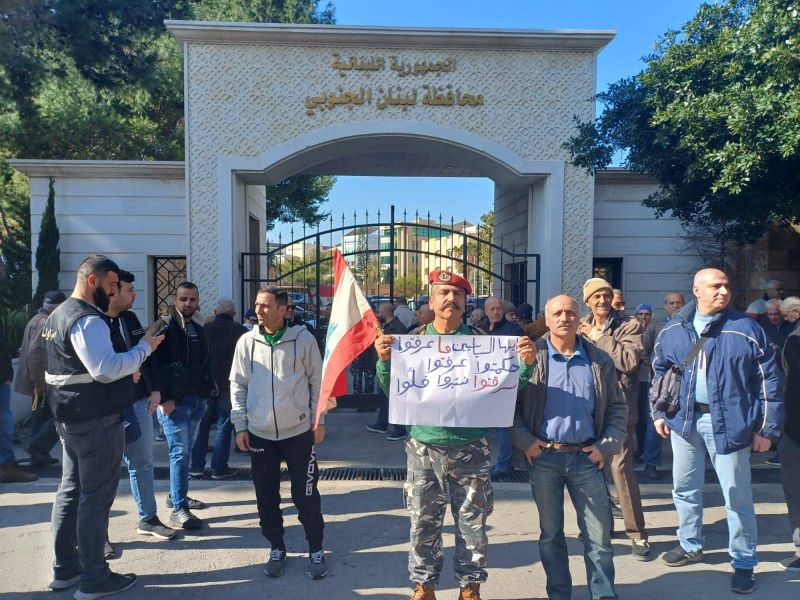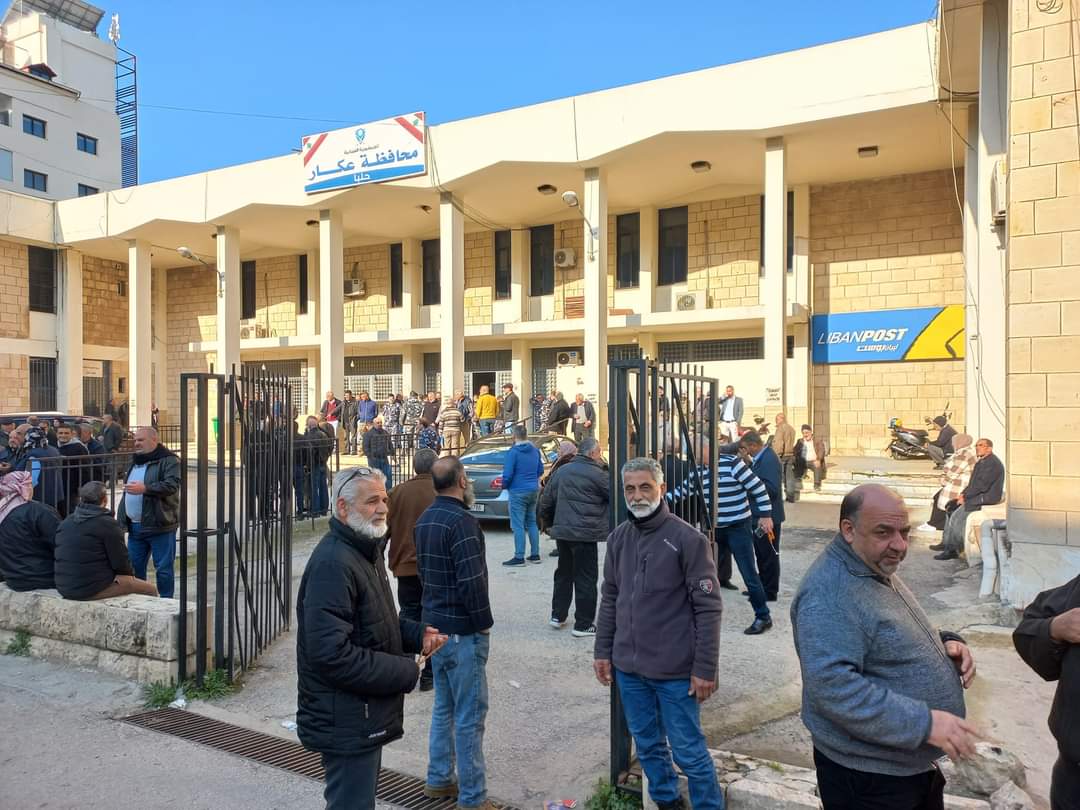
Retired soldiers blocking access to the Serail in Saida on Thursday February 22, 2024. (Credit: Muntasser Abdallah)
A new wave of demonstrations and strikes organized by retired military personnel and civil servants swept Lebanon on Thursday, Feb. 22, ahead of a government meeting scheduled for Friday at the Grand Serail in Beirut. The main demand: Higher salaries and retirement benefits.
According to our correspondent Muntasser Abdallah, a group of retired military personnel have been staging a sit-in in front of the Serail – the government headquarters in Saida – since 7:30 a.m. on Thursday.
Also in Beirut, retired soldiers blocked access to several Ministry of Finance buildings, including the VAT building. In several localities in the Bekaa, notably Baalbeck, according to our correspondent Sarah Abdallah, soldiers demonstrated for the same reasons.
The same was true in Halba, Akkar (North Lebanon), where a large number of retired military personnel closed the doors of the town's Serail, according to our correspondent Michel Hallak. Rallies were also held in Tripoli, Minyeh, Koura, Zgharta and Batroun (North Lebanon). Even in South Lebanon and Iqlim al-Kharroub, regions regularly targeted by the Israeli army in its war with Hezbollah since October 2023, sit-ins were held for the same reasons.
In Saida as elsewhere, demonstrators prevented civil servants from entering their offices.
 Sit-in by angry former soldiers in Halba in Akkar. (Photo provided by Michel Hallak)
Sit-in by angry former soldiers in Halba in Akkar. (Photo provided by Michel Hallak)
Former military personnel have been protesting since Feb. 6 for an increase in their retirement benefits, which have lost most of its value following the start of the economic crisis in 2019. A sit-in in front of the Grand Serail on Feb. 6 turned into a confrontation with the police. At a meeting on Feb. 10, Najib Mikati's caretaker government asked for time to study the issue but has yet to make any formal or public decision. On Wednesday, Feb. 21, they issued an ultimatum to the government to prepare a draft law on wage increases by Thursday, to be approved on Friday, or risk escalation. A new government meeting is scheduled for Friday, which could lead to wage increases for the public sector.
Retired general Bassam Yassine, one of the Saida demonstrators, told our correspondent that this is a first step in the escalation planned by their movement if the government does not respond to the demands presented to it since Feb. 8. According to the former general, the demonstrators are to remain in place until the offices close at 2 p.m., to ensure that civil servants will not have access to them during the day on Thursday. He assured that if the government does not take into account the demands of retired military personnel and civil servants in general, this protest movement would grow.
Discontent is also spreading to the civil service: On Thursday, civil servants at the Ministry of Information went on strike, following a meeting the previous day with caretaker Minister Ziad Makari, which failed to resolve the problem, according to their statement published on the website of the state-run National News Agency (NNA). And this discontent was heightened tenfold when a decision to pay bonuses to some – not all – civil servants was leaked. On Thursday, caretaker Prime Minister Najib Mikati asked his Finance Minister, Youssef Khalil, not to implement the measure until it was discussed at the government meeting due to take place on Friday.
The movement of retired military personnel is gaining in size. On Feb. 19, a group of army veterans issued a statement calling for "non-payment of bills and new taxes [enacted by the 2024 budget law], including electricity, water and telecommunications bills, as well as municipal bills and those for all official formalities."
This article originally appeared in French in L'Orient-Le Jour.


